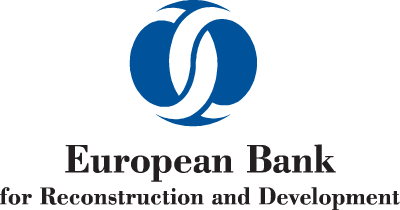

22-10-2024
Reconstruction begins at the "Steve Naumov" student dormitory
This is part of North Macedonia’s regional energy efficiency programme funded by the EU.


Promoting renewable energy and energy efficiency
The Regional Energy Efficiency Programme was established by the Western Balkans Investment Framework in 2012. Various organisations cooperate to make it a success, including the Energy Community, the European Bank for Reconstruction and Development, European Commission and KfW Banking Group. It comprises more than € 600 million of investments from the EBRD and KfW Banking Group, which are combined with grants from the WBIF.
PARTNERS:

![]()



Supporting public authorities to prepare and implement energy efficiency projects
The EBRD provides support to promote energy performance contracting in the public sector and public-private partnerships. Technical assistance is offered to municipalities or central governments to prepare, tender for and implement energy performance contracts for energy efficiency projects such as street lighting and energy supply contracts.
Credit lines through partner financial institutions 
Financial assistance to individuals, businesses and municipalities wanting to invest in energy efficiency and small-scale renewable energy projects. WebGEFF focuses on residential sector energy efficiency and small-scale renewable investments implemented by individuals and housing associations.
The Western Balkans Green Economy Financing Facility (WB GEFF) was launched in 2017, focusing on residential sector energy efficiency and small-scale renewable investments implemented by individuals and housing associations. The KfW and participating financial institutions (PFIs) are now expanding their investments in sustainable energy.
Successfully runs these projects to boost the green economy in 27 different countries. It has made available more than € 4.4 billion for financing projects through more than 140 local partner financing institutions.
Supporting energy savings in residential buildings for the past 10 years: worldwide over 4 million housing units have either been built or refurbished to make them more energy efficient during this period. In the Balkans region KfW has issued more than € 160 million in loans or grants to builders and renovators with the financial cooperation of the German government.
Investments in RE and EE in enterprises
Investments in both medium-scale renewable energy and energy efficiency improvements in industrial enterprises Local small and medium-sized enterprises or project developers:
Eligible borrowers can benefit from:
Support to state entities, cities and municipal companies to improve energy efficiency in public buildings, such as schools, hospitals or government buildings.
Concept
KfW has a particular focus on highly efficient public buildings - Nearly-zero-energy-buildings (NZEB) or EnergyPlus (EP) buildings which form an indispensable building block on the way to carbon neutrality. KfW also promotes the Energy Monitoring Systems in public buildings, supported by IT smart devices to detect inefficiencies and optimise the operations of a building.
Policy products to improve the regulatory environment and remove barriers for investments in energy efficiency. Policy dialogue activities with governments in the Western Balkans aim to align their relevant legislation to EU standards. To date 50 policy deliverables have been finalised. The policy assignments are implemented in close cooperation with the Energy Community Secretariat. Governments are welcome to submit Expressions of Interest for such support, with reference to any of the key areas listed below.
22-10-2024
This is part of North Macedonia’s regional energy efficiency programme funded by the EU.
24-09-2024
Discover how Slavoljub Nikolić has increased yields and enhanced production quality on his Serbian farm throug...
15-07-2024
The Ecoloans programme has helped CEMPROM reduce costs and emissions, create jobs, and promote sustainable pr...






